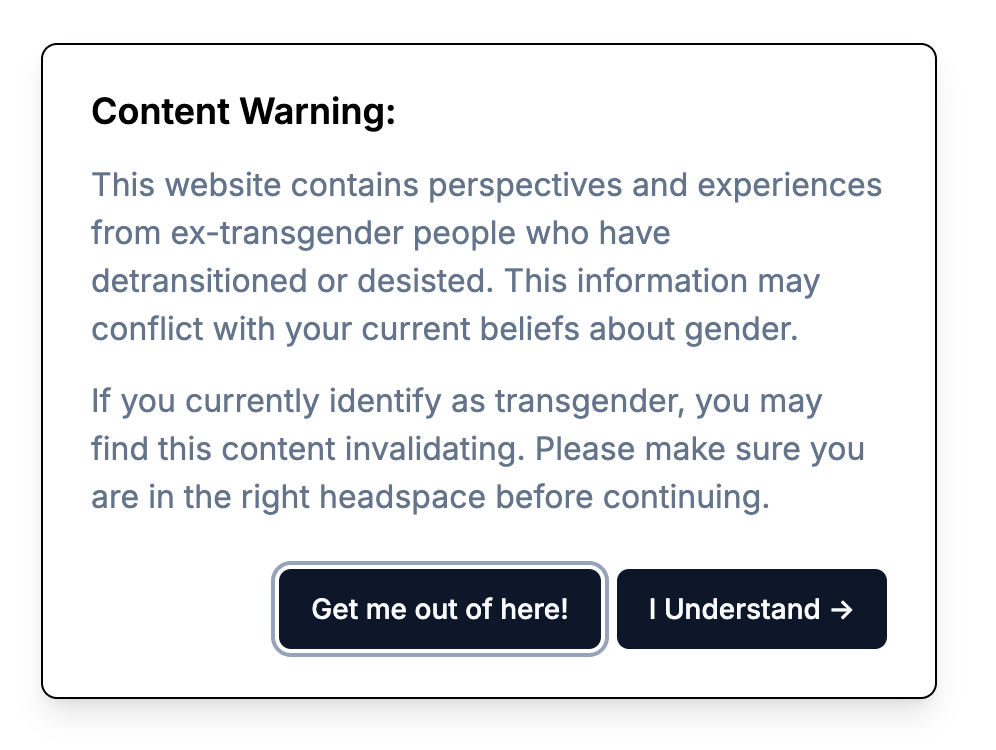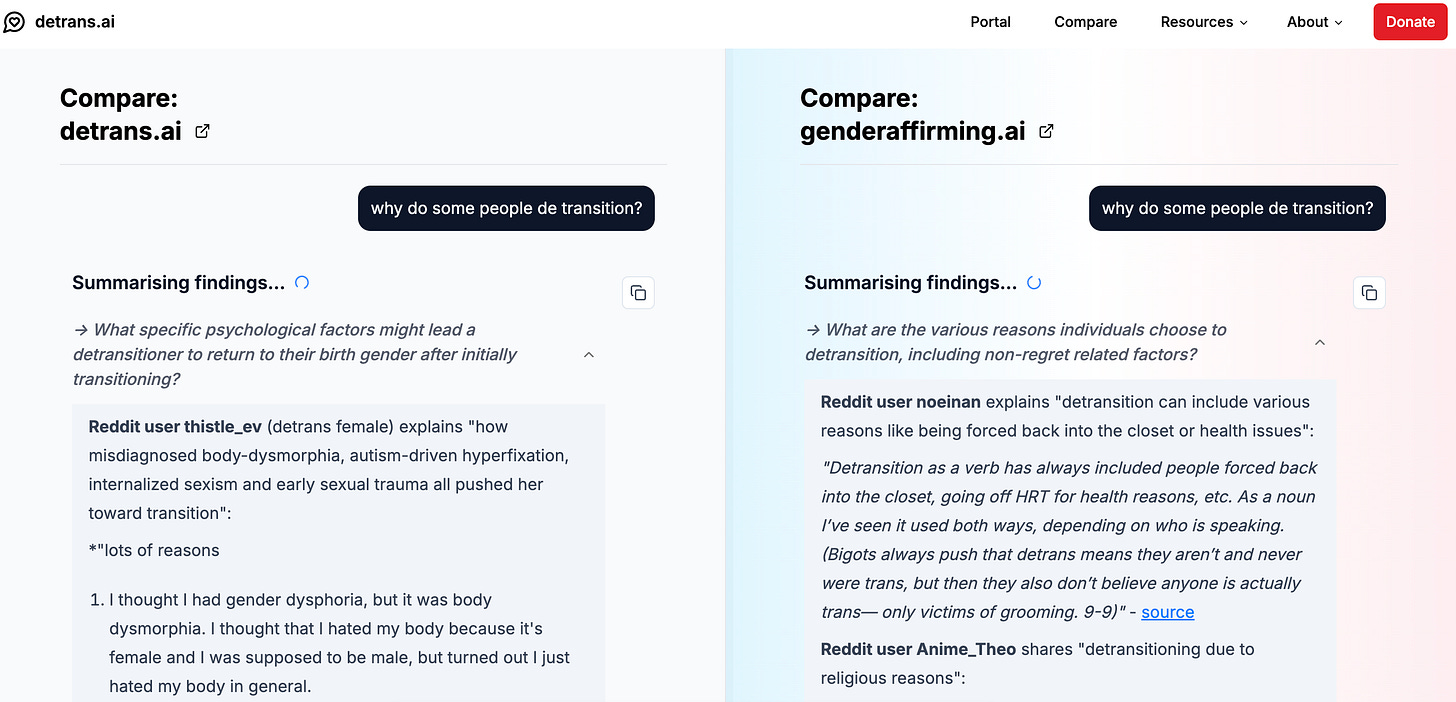This May Be the Best Use of AI Technology to Educate the Public About Gender Yet
But first: a trigger warning
Recently, I wrote about the relationship between big tech and censorship—a deeply intimate relationship, that has not only silenced the voices of many in the gender resistance, but also marked science as misinformation and misinformation as truth. The far left is just as skilled at wielding “fake news” as the far right.
Occasionally, I’ve seen glimmers of hope in AI. Of course, AI is designed to be sycophantic; it will tell most people what they already want to hear, thickening the walls of their extant echo chambers. But you can ask it to push back on your ideas, counter your arguments, or offer you perspectives you haven’t yet considered. It can, if you want, show you multiple perspectives on the same topic, in a way it seems almost nothing else can these days. (What’s the best AI to use for this function? Please tell me in the comments.)
That’s what a site called detrans.ai offers.
Per the creator, a New Zealander named Peter James Steven:
detrans.ai answers questions from a detrans perspective by integrating thoughts and experiences from the online /r/detrans community. This produces helpful and insightful responses that help users understand how and why some people adopt, inhabit, and let go of gender identities, and how these experiences shape one’s relationship with self, body and the world. Please note, all experiences are subjective and not representative of all trans or detrans people.
You can use detrans.ai for detransition help or advice, or simply as a research tool. You can also compare trans and detrans perspectives from the compare page. If this website helped you, please let me know!
Here’s an example of the comparison feature, which shares perspectives from a different AI, genderaffirming.ai, and detrans.ai:
As you can see, if you’re looking from the perspective of those who call themselves detransitioners—that is, those who transitioned and tried to revert back to their natal sex, due to medical harm—you’ll be introduced to the concept of “diagnostic overshadowing.” They were misdiagnosed with gender dysphoria, when other mental health issues were at play. If you’re searching in the affirmative AI, you’ll get the talking point that detransitioners include those “forced back into the closet” due to external reasons, such as stigma or cost.
Alas, if you poke around detrans.ai and genderaffirming.ai individually, you’ll see a major difference. Upon visiting detrans.ai, users see a popup trigger warning stating that they might find the content “invalidating.” That is, if your identity entirely depends on everyone else, including strangers and politicians, validating it, then other perspectives are threatening. I would change the language not to warn people that they may encounter conflicting beliefs about gender, but to encourage them to do so.
Upon visiting genderaffirming.ai, however, no such content warning appears.
Still, I see this AI as a tremendously positive step. The radical idea that children are born in the wrong body, and that identity is immutable while the body is mutable, gained so much purchase because any pushback was deemed heresy and outlawed. To make “misgendering”—that is, correctly sexing—harassment was to essentially outlaw soothsaying. If no one can consider other points of view without risking social death, or their livelihoods, then only the untruth prevails.
The Trump administration offers short-term solutions and band-aids, by way of bans or executive orders. But if you want the people who still think of gender-affirming care as health care, or who think some kids are born in the wrong body, to begin to shift, they need to access multiple perspectives. And they need those perspectives lifted from the thought-terminating framing of left versus right.
I would love to hear from anyone who has used this tool, or if there are other tools like it, to help create room for difficult conversation around this topic. Sure, there’s a culture war going on, but we still have a lot of work to do far from the front lines.




Wow. This gives me an idea for a trans widows' legal advice AI platform. I'd be happy to give them my data showing that we're approaching a 40% domestic violence rate by the suddenly full time crossdressing husbands. With data from 74 of us, including women who stayed as long as a decade trying to pretend to be "lesbians" but unable to endure his violent fits any longer, the patterns have been clear and stable ever since I had 35 testimonies. The documentary on us, which I'm wondering if your podcast would ever deign to review, also confirms this heightened violence in crossdressing husbands. Behind the Looking Glass, at Lime Soda Films youtube channel:
https://www.youtube.com/watch?v=Frffv2sB8zE
I haven’t really used AI much, but Josie has, and just today was noting to me how, though it often gives inaccurate results, if she queries further, it has the ability to course-correct. It does seem there should be a way to harness this for the good. Good on you for opening this line of inquiry.